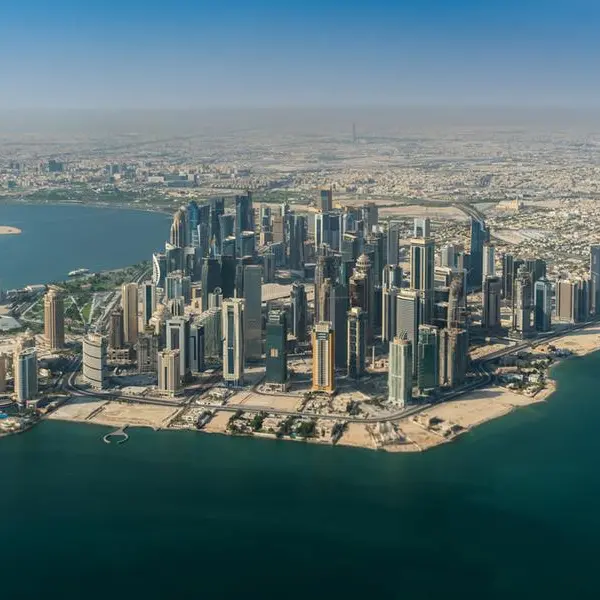22 February 2017
A E James
Muscat: Oman’s total vehicle registrations fell by 19.5 per cent to 6,935 in January this year, against 8,612 units for the same month of 2016.
The fall in registration can be attributed to reluctance of people to spend on high value products like vehicles in view of ongoing economic slowdown, increase in fuel prices and slackness in job creation.
As far as different types of vehicles are concerned, a drastic fall witnessed in the category of commercial vehicles and taxis, which dipped by 44.8 per cent and 47.5 per cent, respectively, to 1,140 units and 30 units, according to statistics released by the National Centre for Statistics and Information (NCSI) on Tuesday.
“I think, it is in line with the general trend. It could be due to postponement of purchase decisions,” Aftab Patel, chief executive officer of Al Omaniya Financial Services, told Times of Oman.
Drop in enquiries
“Dealers have also indicated a drop in enquiries and the possible reason for this drop could be the rising price of oil (petrol and diesel) and the generally weak market sentiment. This is expected to improve in the latter half of the year,” noted Bikram S Rishi, chief executive officer of Muscat Finance.
“Several companies would have postponed their decisions to acquire new vehicles, which again depends on commercial and business needs,” added Patel.
“The drop in commercial vehicle segment is directly linked to the pace of investments by the government in infrastructure projects, which had slowed in 2016. Companies are also being careful in buying new vehicles as the cash flow in the system is tight, due to payment delays experienced by them,” added Rishi.
Private vehicle registrations in Oman in January this year showed a 12.1 per cent fall at 5,309, from 6,042 units for the same month of 2016.
“The people are conservative now because of economic uncertainty. People are not replacing cars and they defer their purchase decisions,” said another senior official of a leasing firm, who does not want to be named.
As far as commercial vehicle sales are concerned, businesses are more conservative due to lack of liquidity. The companies try to operate with the existing fleet although the operating cost is slightly higher, than go for new commercial vehicles with additional investment. Commercial vehicles are mainly used in the construction sector, transportation and mining.
Rishi said that since the borrowing costs have gone up, all non-banking finance companies (NBFCs) have increased the rates at which they are doing new loans.
The overall lending rates in the financial system were more or less stable in the last one year or so.
“The demand will bounce back very quickly for both private and commercial vehicles in the second quarter of this year. The business sentiment is much better now, thanks to a recovery in oil prices. The year 2016 will be a much better year, due to pro-active measures taken by the government in the budget,” said Patel. Echoing a similar view, Rishi said; “I expect the demand to pick up in the second half of the year if oil prices remain stable at the current levels.”
Registrations of taxis plunged by 47.5 per cent to 30 units, while driving school vehicle registrations declined by 18.5 per cent to 19 units in January this year, over the same period of last year. Registration of motorbikes also edged down by 1.6 per cent to 63 bikes.
Oman imports vehicles for domestic sale and for re-exports to regional markets. The Sultanate’s total vehicle registration in 2016 was 100,144 vehicles and 74.80 per cent were private cars.
Also, the Sultanate has 1,376,050 vehicles on the road by the end of January, 2017.
A E James
Muscat: Oman’s total vehicle registrations fell by 19.5 per cent to 6,935 in January this year, against 8,612 units for the same month of 2016.
The fall in registration can be attributed to reluctance of people to spend on high value products like vehicles in view of ongoing economic slowdown, increase in fuel prices and slackness in job creation.
As far as different types of vehicles are concerned, a drastic fall witnessed in the category of commercial vehicles and taxis, which dipped by 44.8 per cent and 47.5 per cent, respectively, to 1,140 units and 30 units, according to statistics released by the National Centre for Statistics and Information (NCSI) on Tuesday.
“I think, it is in line with the general trend. It could be due to postponement of purchase decisions,” Aftab Patel, chief executive officer of Al Omaniya Financial Services, told Times of Oman.
Drop in enquiries
“Dealers have also indicated a drop in enquiries and the possible reason for this drop could be the rising price of oil (petrol and diesel) and the generally weak market sentiment. This is expected to improve in the latter half of the year,” noted Bikram S Rishi, chief executive officer of Muscat Finance.
“Several companies would have postponed their decisions to acquire new vehicles, which again depends on commercial and business needs,” added Patel.
“The drop in commercial vehicle segment is directly linked to the pace of investments by the government in infrastructure projects, which had slowed in 2016. Companies are also being careful in buying new vehicles as the cash flow in the system is tight, due to payment delays experienced by them,” added Rishi.
Private vehicle registrations in Oman in January this year showed a 12.1 per cent fall at 5,309, from 6,042 units for the same month of 2016.
“The people are conservative now because of economic uncertainty. People are not replacing cars and they defer their purchase decisions,” said another senior official of a leasing firm, who does not want to be named.
As far as commercial vehicle sales are concerned, businesses are more conservative due to lack of liquidity. The companies try to operate with the existing fleet although the operating cost is slightly higher, than go for new commercial vehicles with additional investment. Commercial vehicles are mainly used in the construction sector, transportation and mining.
Rishi said that since the borrowing costs have gone up, all non-banking finance companies (NBFCs) have increased the rates at which they are doing new loans.
The overall lending rates in the financial system were more or less stable in the last one year or so.
“The demand will bounce back very quickly for both private and commercial vehicles in the second quarter of this year. The business sentiment is much better now, thanks to a recovery in oil prices. The year 2016 will be a much better year, due to pro-active measures taken by the government in the budget,” said Patel. Echoing a similar view, Rishi said; “I expect the demand to pick up in the second half of the year if oil prices remain stable at the current levels.”
Registrations of taxis plunged by 47.5 per cent to 30 units, while driving school vehicle registrations declined by 18.5 per cent to 19 units in January this year, over the same period of last year. Registration of motorbikes also edged down by 1.6 per cent to 63 bikes.
Oman imports vehicles for domestic sale and for re-exports to regional markets. The Sultanate’s total vehicle registration in 2016 was 100,144 vehicles and 74.80 per cent were private cars.
Also, the Sultanate has 1,376,050 vehicles on the road by the end of January, 2017.
© Times of Oman 2017




















